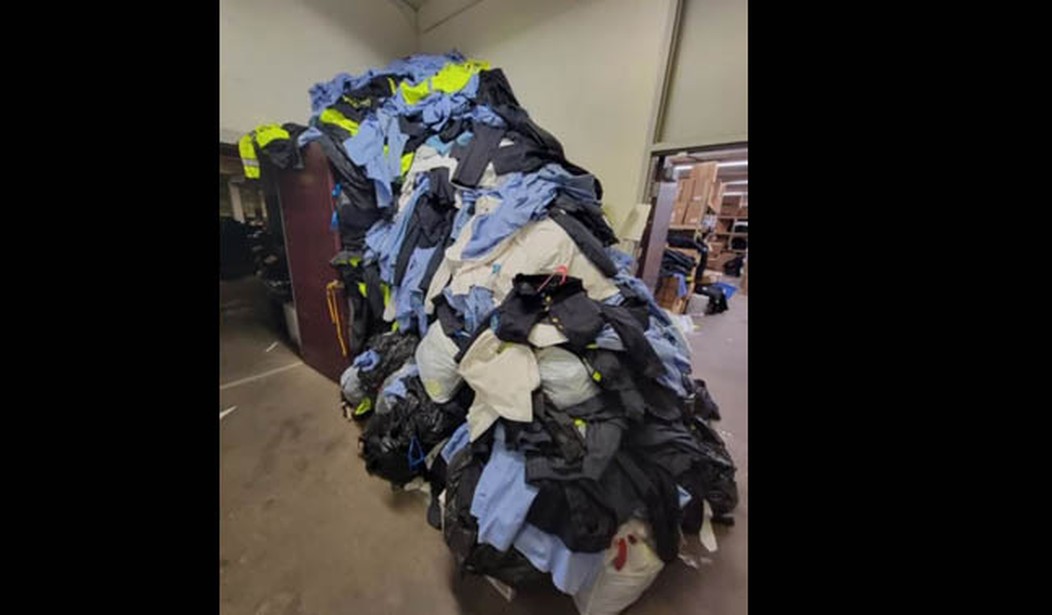Over at the Free Press, author Leighton Woodhouse has an excellent article about the ongoing legacy of Black Lives Matter and the “defund the police” movement they helped usher in to cities across America. Regular readers know this is a particular bugaboo of mine. That’s not just because it was a brutal issue for Democrats who jumped on the bandwagon in 2020. It’s mostly because it’s such a shining example of how progressive enthusiasm for fundamental change can often result in complete disaster. Committing to defunding the police without a plan to replace them with something better is one of the dumbest things the left has done in my lifetime and as such it should be used as an object lesson of what not to do for many years to come.
Unfortunately, two years after most Democrats realized how dumb it was and backtracked, we’re still dealing with the repercussions. Many cities have lost officers faster than they can replace them.
The Los Angeles Police Department has been losing 50 officers a month to retirement, more than the city can replace with recruits. Oakland lost about seven per month in 2021, with the number of officers sinking below the city’s legally mandated minimum.
The list goes on: Chicago has lost more cops than it has in two decades. New Orleans is backfilling its shortfall of officers with civilians. New York is losing more police officers than it has since such figures began being recorded. Minneapolis and Baltimore have similar stories. St. Louis—one of the most dangerous cities in America—has lost so many cops that there’s a seven-foot-tall, 10-foot-wide pile of uniforms from outgoing officers at police headquarters called “Mount Exodus.”
I’d never heard about Mount Exodus in St. Louis but that’s it in the photo above. All of this of course can be tied back to BLM which has been setting the anti-police tone for nearly a decade now.
The shift in police officers’ perception of how they’re viewed by the public happened gradually—starting with the first Black Lives Matter protests of 2013, after the shooting death of Travyon Martin and the acquittal of the man who killed him, George Zimmerman. There were more BLM demonstrations: in 2014, following the deaths of Michael Brown in Ferguson, Missouri, and Eric Garner in New York. Then came the 2015-2016 Democratic presidential primaries, in which BLM played a prominent role.
And then, in late May 2020, George Floyd, a black man, was killed by a white police officer, Derek Chauvin, and it was caught on video. The incident ignited protests across the country—a “racial reckoning”—and, soon after, reform…
It became popular—even fashionable—for politicians in progressive circles to flaunt their anti-police credentials. In Minneapolis, where George Floyd was killed, the city council resolved to “begin the process of ending the Minneapolis Police Department.” (They reversed course after crime surged.) In New York, after winning the Democratic congressional primary, now-Rep. Jamaal Bowman tweeted: “Police officers have sworn to protect and serve the institution of white supremacy.”
But curiously, while mayors around the country were walking back their anti-police talk in the wake of rising violence, no one was talking about BLM. It’s as if the media who helped push the idea of “defund the police” with explainers about what it really meant, suddenly forgot where these ideas came from. Even as BLM has been immersed in scandal over its handling of money, they never seem to take the blame for the sharp rise in crime. Instead we’re told it was caused by the pandemic even though the pandemic was worldwide and the crime spike and rise of the murder rate happened primarily here in the US.
The piece tells the story of officer Brian Lande who says he’s pulled his weapon so many times working in Richmond, CA that he can’t tell them all apart. Like a lot of other officers, he decided to move after the city got wrapped up in the defund enthusiasm. Now he works a short drive away in Kensington. But while he knows the move was good for him he’s also concerned about what it means for Richmond and towns and cities like it that police are leaving.
“An enormous amount of damage has been done,” he told me. “Instead of seeing real investment in policing, like what we see in Europe, we’ve seen a massive disinvestment.”
We’re still paying a price but there seems to be no one in the major media interested in connecting those dots back to the groups and individuals responsible.







Join the conversation as a VIP Member